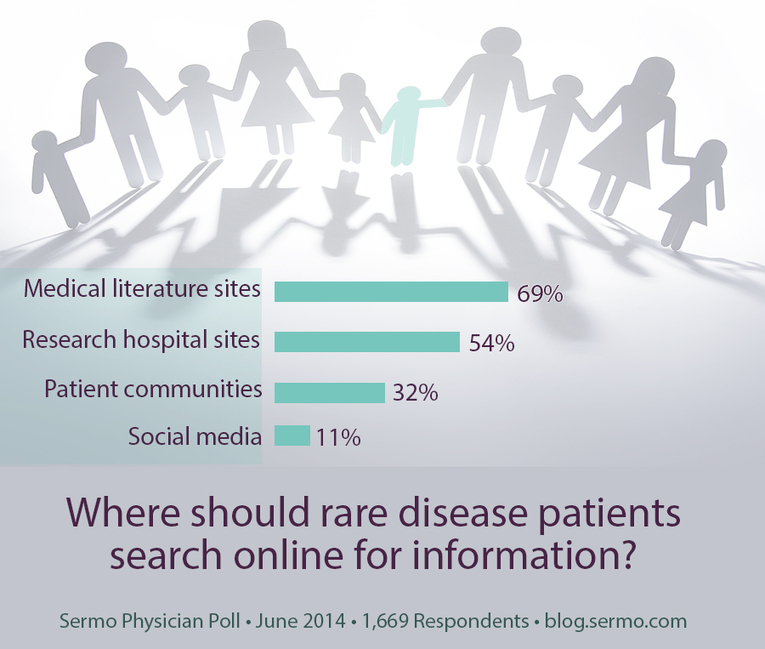E-Health: Apps that Help Physicians Explain Diagnosis to Patients | L’Atelier: Disruptive innovation
30/06/2014Une cabine à la place du médecin
30/06/2014How The Internet Helps Rare Disease Patients
Searching online for a travel destination or a recipe is simple enough. But what if you wanted to diagnose a medical condition? 35 percent of US adults say they’ve used search tools to find a diagnosis.
Perhaps not surprising to physicians, of these “online diagnosers” less than half (41 percent) got their diagnosis right.
Rare Diseases and Online Community
For rare disease patients, finding others with the same unusual set of symptoms can be a lifeline. With a confirmed diagnosis, patients can connect digitally in a way that is often impossible in real life.
Rare disease is defined in the US as having less than 200,000 patients; in the EU it is one in every 2,000 people. Inherently, patients are sparse for the7,000+ known rare diseases. Only about 50 percent have advocacy groups or organizations fighting on their behalf.
Rare Disease Patients Are Power Internet Users
The Pew Research Internet Project found rare disease patients use the internet to connect with others in far greater numbers than other patients. Overall, only five percent of patients say they have interacted online with a fellow patient, but 50 percent of rare disease patients say they have connected with others sharing their condition.
The mother of a patient in the study noted,
“When a disease is so rare, and there are no folks in your town, and few in your state who are going through what you are going through, you need a support group that encompasses people from all over the world. Getting to know people through the disorder has been an amazing experience and has created incredibly wonderful friendships and ties.”
Where Does the Online Search Begin?
Seventy-seven percent of online health-seekers start with major search engines such as Google or Bing. No matter how their searches begin, physicians wish their clicks would lead them away from social media and toward more technical information sites.
In a recent survey, we asked Sermo member physicians, “Where should rare disease patients search online for information?”
- 69 percent preferred medical literature sites such as the Journal of the American Medical Association or the New England Journal of Medicine.
- 54 percent approved of research hospital sites such as Massachusetts General Hospital or Stanford Medical.
- 32 percent gave a nod to patient communities such as Patients Like Me.
- 11 percent approved of social media sites such as Facebook or Twitter.
Registries Can Be Life Saving
Rare disease patients like to connect for emotional support and information as their issues progress. For researchers and physicians, online registries are a boon. Clinical trials can find participants quickly and speed the path of a drug to market, potentially saving lives and easing symptoms.
In an NPR article, Sue Byrnes, a patient and founder of a rare lung disease registry said,
“the internet actually facilitates research. Researchers can search that database or ask the foundation to survey its members online for information about symptoms and treatment. Scientists don’t have the time to do these sorts of things, so we do it for them.”
Overall, rare disease patients use online resources to connect, for support in their diagnoses, to compare treatment notes and to participate in research studies. Physicians and researchers use online connections to find patients and collaborate on treatment plans.
As a physician, have you directed a rare disease patient to an online resource? Have you found patients have better outcomes if they have an emotional connection? Has a rare disease patient ever questioned your treatment plan based on information they received online?
Source: blog.sermo.com



